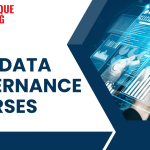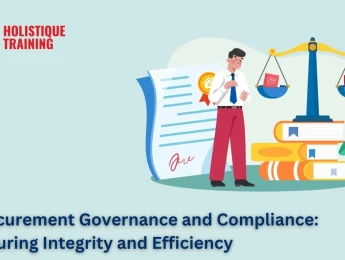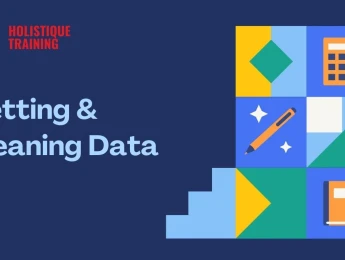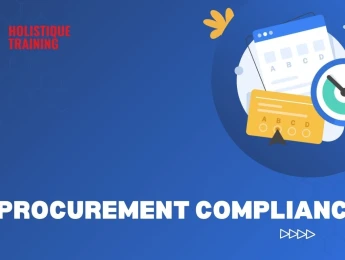Data governance and compliance management are integral components of organisational frameworks that ensure proper data handling, storage, and utilisation following legal and regulatory requirements.
Data governance encompasses the establishment of policies, procedures, and controls to effectively manage data assets throughout their lifecycle, including data quality, security, GDPR, and access. Compliance management involves adhering to relevant laws, industry regulations, and internal policies governing data usage, privacy, and security.
These practices are essential for businesses to mitigate risks associated with data breaches, regulatory penalties, and reputational damage. By implementing robust data governance and compliance management strategies, organisations can enhance data integrity, foster stakeholder trust, and support informed decision-making processes, safeguarding their operations and maintaining regulatory compliance.
Upon completion of this course, participants will be able to:
- Be proficient in GDPR stipulations about information governance.
- Understand the most effective methods for enhancing data and information management efficiency and efficacy within organisations to address privacy, data protection, and cybersecurity vulnerabilities.
- Formulate a Business Continuity Plan.
- Execute thorough audits on data privacy protection by taking appropriate measures.
- Identify data governance measures, policies, and tactics for capturing, managing, and securely disposing of business data and records.
- Assess information and information management controls to devise strategies for overseeing information compliance, audits, legislation, and regulations.
- Establish a Data Governance initiative that encompasses the delineation of roles and responsibilities, risk mitigation, and enhancement of business processes.
- Adhere to international best practices in data management, such as ISACA, ISO 8000 standards, and privacy and global cybersecurity protocols.
This course is designed for anyone responsible for maintaining data security and efficiently using and disposing of data within an organisation. It would be most beneficial for:
- IT personnel
- Auditors
- Risk Managers
- Business Owners
- Consultants
- Legal Advisers
- Technical Managers
- Change & Control Managers
- Business Continuity Personnel
- HR Personnel
- Procurement Managers
- Business Analysts
- Data Technicians
- Senior Managers
This course uses a variety of adult learning styles to aid full understanding and comprehension. Participants will review presentations to examine in depth the ways that data can be harvested, stored, and removed from systems securely and will discuss in depth what GDPR practices mean for their organisation.
They will work together to create all the steps necessary to come up with an adequate business continuity plan in the event of lost data or security breach scenarios.
Day 5 of each course is reserved for a Q&A session, which may occur off-site. For 10-day courses, this also applies to day 10
Section 1: What Do the International Data Management Standards Mean?
- Introduction to international data management standards.
- Understanding the significance of data management standards.
- Exploring the framework of international data management standards.
- Implementation strategies for data management standards.
- Compliance and governance in international data management.
Section 2: Compliance & Data Security Under ISO2 27001
- Understanding the importance of ISO 27001 in data protection.
- Key principles and requirements of ISO 27001.
- Developing an ISO 27001 compliance framework.
- Implementing security controls to meet ISO 27001 standards.
- Conducting risk assessments and gap analysis for ISO 27001 compliance.
- Auditing and certification processes for ISO 27001 compliance.
- Continuous monitoring and improvement of data security under ISO 27001.
Section 3: Data Mining, Storage & Reporting
- Data preprocessing methods.
- Association rule mining.
- Classification and regression techniques.
- Clustering algorithms.
- Text mining and natural language processing.
- Time series analysis.
- Dimensionality reduction techniques.
- Data storage architectures.
- Relational and non-relational databases.
- Big data technologies: Hadoop, Spark, etc.
- Data warehousing concepts.
- Data reporting and visualisation tools.
- Dashboard design principles.
- Reporting automation techniques.
- Data governance and compliance requirements.
Section 4: Finding the Best IT Governance Solutions
- Regulatory compliance frameworks.
- Risk management strategies.
- IT governance frameworks: COBIT, ITIL, etc.
- Implementing governance structures.
- Information security management systems.
- IT governance metrics and key performance indicators (KPIs).
- Vendor management and outsourcing considerations.
- Change management processes.
- Incident response and business continuity planning.
- Auditing and assurance practices.
Section 5: New Policies & Procedures
- Challenges and best practices in adhering to data management standards.
- Future trends and developments in international data management standards.
- Continuous improvement in IT governance.
Section 6: Your Business Continuity Plan
- Developing business continuity strategies and plans.
- Crisis communication and stakeholder management.
- IT disaster recovery planning.
- Continuity of operations (COOP) planning.
- Testing, training, and exercising your continuity plan.
- Business continuity plan maintenance and review processes.
- Regulatory compliance and legal considerations.
- Business continuity planning for specific industries or sectors.
- Integrating business continuity with other risk management processes.
Upon successful completion of this training course, delegates will be awarded a Holistique Training Certificate of Completion. For those who attend and complete the online training course, a Holistique Training e-Certificate will be provided.
Holistique Training Certificates are accredited by the British Assessment Council (BAC) and The CPD Certification Service (CPD), and are certified under ISO 9001, ISO 21001, and ISO 29993 standards.
CPD credits for this course are granted by our Certificates and will be reflected on the Holistique Training Certificate of Completion. In accordance with the standards of The CPD Certification Service, one CPD credit is awarded per hour of course attendance. A maximum of 50 CPD credits can be claimed for any single course we currently offer.
- Course Code IND02-116
- Course Format Classroom, Online,
- Duration 5 days














